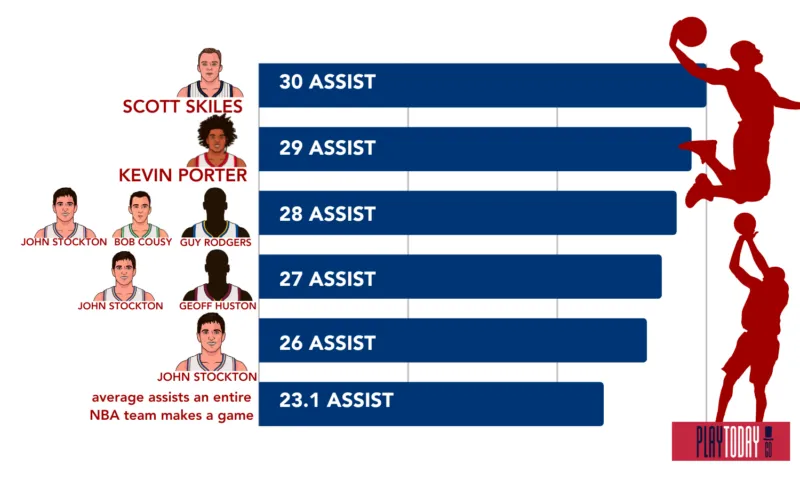Athletic records are an integral part of the sporting world. They serve as a benchmark for excellence and inspire athletes to push their limits. From breaking world records to achieving personal bests, athletic records hold a significant place in the hearts of athletes and fans alike.
In this comprehensive guide, we will delve into the importance of athletic records, how they are created and maintained, and the impact they have on the sports industry. We will also explore some of the most iconic records in various sports and the athletes who have achieved them. So, let’s dive in and discover the fascinating world of athletic records.
The History of Athletic Records

Records have been a part of sports since ancient times. The Greeks kept track of winning athletes in the Olympic Games, and the Romans recorded gladiatorial performances in their arenas. However, it wasn’t until the 19th century that organized record keeping came into existence.
In 1830, a group of English gentlemen founded the National Olympian Association with the aim of promoting amateurism in sports. As part of their efforts, they started keeping records of top performances in various sports. This led to the establishment of the British Amateur Athletic Club in 1866, which became the governing body for track and field events and was responsible for maintaining and recognizing athletic records.
The first official world record recognized by the International Association of Athletics Federations (IAAF) was set in 1912 by American athlete Jim Thorpe in the pentathlon event at the Stockholm Olympics. Since then, the creation and recognition of athletic records have evolved significantly.
Today, there are various record-keeping organizations for different sports, including the IAAF, World Swimming Federation (FINA), and International Cycling Union (UCI). These organizations have strict guidelines for determining and verifying records, ensuring fairness and accuracy in the process.
How Athletic Records Are Created and Maintained
Creating and maintaining athletic records is a meticulous process that involves the collaboration of athletes, officials, and record-keeping organizations. Let’s take a closer look at the steps involved in creating and maintaining an athletic record.
Setting the Record Criteria
Before an athlete can attempt to break a record, there must be clear criteria set for that specific event. These criteria may include factors such as the equipment allowed, age restrictions, and environmental conditions. For example, in track and field events, the wind speed and direction are closely monitored, and only records achieved within a certain range are recognized.
Record criteria also depend on the level of competition. National records have less stringent criteria than world records, and some events may not have any records at all, especially in emerging sports.
Breaking the Record
Once the record criteria are established, the athlete must compete in a sanctioned event where record attempts are permitted. The event must also follow all rules and regulations set by the governing body. In most cases, record attempts are announced beforehand, and special measures, such as electronic timing systems, are put in place to ensure accuracy.
If the athlete successfully breaks the record, the result is immediately recorded and verified by officials. This includes checking for any rule violations or discrepancies. If everything is in order, the record is then submitted for official verification.
Verifying the Record
The verification process varies for different sports but typically involves a panel of experts reviewing the record attempt and confirming its authenticity. This usually includes verifying the equipment used, analyzing video footage and data, and conducting drug tests if necessary.
If the record is deemed valid, it is then officially recognized by the governing body and added to their record books. It may also be recognized by other record-keeping organizations, depending on their criteria and rules.
Maintaining the Record
Athletic records are not set in stone. As sports continue to evolve and athletes become faster, stronger, and more skilled, records are constantly being broken. However, the process of maintaining records is essential to ensure fairness and accuracy.
Records may be updated or revoked if new evidence emerges that disqualifies the record. For example, in 2008, Chinese swimmer Ye Shiwen broke the world record in the women’s 400m individual medley at the London Olympics. However, her performance raised suspicion as she swam the last 50 meters faster than American male swimmer Ryan Lochte. After thorough investigations and drug tests, her record was cleared, and she was allowed to keep it.
Record-keeping organizations also monitor and update records as technology advances and world standards change. For example, in track and field events, the IAAF introduced a new rule in 2007 stating that only electronic timing systems could be used for record purposes, replacing manual times previously used. This led to many records being adjusted or invalidated, highlighting the importance of maintaining records and ensuring their accuracy.
The Impact of Athletic Records on the Sports Industry

Athletic records have a significant impact on the sports industry, influencing everything from training methods to sponsorships and endorsements. Let’s take a closer look at how records shape the world of sports.
Inspiration and Motivation
Athletic records serve as a source of inspiration and motivation for athletes at all levels. Breaking a record not only brings recognition and fame but also inspires others to push beyond their limits and aim for greatness. Records also serve as a benchmark for athletes to measure their progress and set goals for improvement.
Attracting Fans and Media Attention
Records are a major draw for fans and media coverage in sports. They create a buzz and generate excitement, especially when top athletes are vying for a record-breaking performance. Often, record attempts are heavily publicized and attract large crowds, making them a desirable event for sponsors and advertisers.
Publicity and Sponsorships
Athletes who hold records often receive significant media coverage and publicity, which can lead to lucrative sponsorship deals and endorsements. Record-breaking performances also increase an athlete’s marketability, making them highly sought after by companies looking to associate themselves with greatness.
Advancements in Technology and Training Methods
In the quest for breaking records, athletes and coaches are constantly seeking ways to improve training methods and utilize the latest technology. This not only benefits the individual athletes but also leads to advancements in sports science and technology, benefitting the entire industry.
Boosting the Economy
Record-breaking performances often lead to increased ticket sales, merchandise purchases, and tourism. For example, Usain Bolt’s record-breaking runs at the 2008 Beijing Olympics led to a surge in tourism to Jamaica, boosting their economy. Records also bring in revenue through live television broadcasts and streaming services, further contributing to the sports industry’s economic impact.
Iconic Athletic Records in Various Sports
![]()
Now that we understand the importance of athletic records, let’s take a closer look at some of the most iconic records in various sports and the athletes who have achieved them.
Track and Field
Track and field events have produced some of the most iconic records in sports history. Here are a few remarkable records that have stood the test of time:
100m Men’s World Record – Usain Bolt (9.58 seconds)
Considered the fastest human ever, Jamaican sprinter Usain Bolt broke the men’s 100m world record at the 2009 World Championships in Berlin, Germany. He has held the record since then, beating his own record by 0.11 seconds. Bolt’s record-breaking performance cemented his status as a legend in the world of track and field.
Triple Jump Women’s World Record – Inessa Kravets (15.50 meters)
Ukrainian athlete Inessa Kravets set the women’s world record in the triple jump event at the 1995 World Championships in Gothenburg, Sweden. Her record of 15.50 meters still stands today, making it the longest-standing individual track and field world record.
Pole Vault Men’s World Record – Armand Duplantis (6.18 meters)
Swedish pole vaulter Armand Duplantis broke the men’s world record at the 2020 indoor competition in Glasgow, Scotland. At just 20 years old, he surpassed the previous record set by French athlete Renaud Lavillenie by 0.02 meters. Duplantis’ record-breaking performance made him the youngest male athlete to hold a world record in athletics.
Swimming
Swimming is another sport that has produced some remarkable records over the years. Here are a few notable ones:
Women’s 800m Freestyle World Record – Katie Ledecky (8:04.79)
American swimmer Katie Ledecky set the women’s 800m freestyle world record at the 2016 Rio Olympics, beating her own record by 1.89 seconds. Ledecky is known for her dominance in distance events and holds several other world records in swimming.
Men’s 100m Butterfly World Record – Caeleb Dressel (49.50 seconds)
American swimmer Caeleb Dressel set the men’s 100m butterfly world record at the 2019 World Aquatics Championships in Gwangju, South Korea. His time of 49.50 seconds beat the previous record set by South African swimmer Chad le Clos by 0.32 seconds. Dressel is considered one of the greatest swimmers of all time and holds multiple world records.
Men’s 200m Breaststroke World Record – Adam Peaty (2:06.12)
British swimmer Adam Peaty set the record in the men’s 200m breaststroke at the 2019 World Aquatics Championships, becoming the first man ever to swim the event in under 2 minutes and 7 seconds. Peaty is known for his dominance in breaststroke events and holds multiple world records.
Cycling
Cycling has seen significant advancements in technology and training methods, resulting in some impressive records. Here are a few notable ones:
Men’s Hour Record – Victor Campenaerts (55.089 kilometers)
Belgian cyclist Victor Campenaerts set the men’s hour record at the Velodromo Bicentenario in Aguascalientes, Mexico, in 2019. He beat the previous record set by British cyclist Bradley Wiggins by 563 meters.
Women’s Hour Record – Evelyn Stevens (47.980 kilometers)
American cyclist Evelyn Stevens set the women’s hour record at the Velodrome Suisse in Grenchen, Switzerland, in 2016. Her record-breaking performance beat the previous record set by Australian cyclist Bridie O’Donnell by 703 meters.
Men’s Individual Time Trial World Record – Rohan Dennis (17:40.00)
Australian cyclist Rohan Dennis set the world record in the individual time trial event at the 2015 UCI Road World Championships in Richmond, USA. His average speed of 55.446 km/h over the 30.6-kilometer course broke the previous record set by German cyclist Tony Martin by 5 seconds.
Football (Soccer)
Football, or soccer, is the most popular sport in the world, and it’s no surprise that it has produced some incredible records. Here are a few notable ones:
Most Goals Scored in a Single Season – Lionel Messi (73 goals)
Argentine footballer Lionel Messi set the record for most goals scored in a single season during the 2011-2012 La Liga season with FC Barcelona. He surpassed the previous record set by German footballer Gerd Müller in 1971-1972, scoring an incredible 73 goals in just 60 games.
Most Goals Scored in a Calendar Year – Lionel Messi (91 goals)
In 2012, Messi also broke the record for most goals scored in a calendar year, beating the previous record set by German footballer Gerd Müller in 1972. He scored 91 goals in just 69 games for club and country, cementing himself as one of the greatest footballers of all time.
Fastest Hat-trick – Tommy Ross (90 seconds)
Scottish footballer Tommy Ross set the record for the fastest hat-trick in a senior match while playing for Ross County FC in 1964. He scored three goals in just 90 seconds against Nairn County FC, a record that still stands today.
Conclusion
Athletic records hold a special place in the world of sports, inspiring and motivating athletes to reach new heights. They also bring excitement and media coverage to events, driving the growth of the sports industry. While records are constantly being broken and updated, their importance and impact will continue to shape the sporting world for years to come. So, let’s celebrate these remarkable achievements and look forward to more record-breaking performances in the future.


